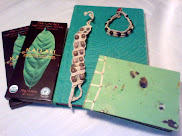As we hacked through a particularly thick part of what I thought was called a forest, Ezequiel turned to me and said:
"The forests aren't like this, huh?"*
"But, this is a forest." I replied.
"No, no no, this is a jungle."
"How do you understand the word 'forest'?"
"Forests are all pine trees."
"Gotcha."You see, in Mexico, all of the forestry literature uses Pine forests, common in central and northern Mexico, when it means to say forests. Its totally understandable that the word would take on a different meaning here, but I think it has an inferioritizing effect. Just like in English the word "Jungle" has bad connotations (which is why we use Rainforest) in Spanish "Selva" has similar problems. It sounds like semantics, but semantics matter!
--
* Obviously, this conversation took place in Spanish, but the words in question correspond quite nicely in English. "Bosque" is used much like forest in most of America, and "Selva" is used like jungle.




No comments:
Post a Comment